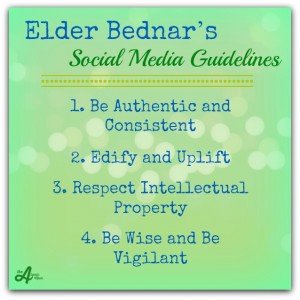
Despite all of the good on the internet, there are some downfalls, and pitfalls. The example I give today is about a woman named Justine Sacco. Ms. Sacco was a PR director for a firm that did humanitarian work. One day she tweeted out a “joke”, and then got on an airplane for 11 hours. During that time, her “joke,” which really wasn’t very funny, or even a joke, really, broke the internet (at least for that week), and created a public furor which left her without a job, and a ruined reputation.
To read the full story click HERE.
The author of the article interviewed Ms. Sacco and the man who created the fury surrounding her bad tweet, Sam Biddle. In an ironic twist of events, Sam Biddle had his own fury from something he said online too, and although his reputation did not suffer as much as Ms. Sacco, he still had his walk in the social media hall of shame.
After reading the article, another friend commented that these public shamings, pile-ons and furies were like the Scarlet Letter of our day. Because someone said something stupid, and thoughtless, they were branded for life, they lost their job, and their reputation was ruined.
In the 10+ years I have been active in the LDS online community I have seen the digital scarlet letter branded on people time and time again, and it is disheartening.
A good remedy and a good way to prevent the digital scarlet letter is to remember a few things:
• You don’t have to win the argument. Just walk away when things have reached a dead end. Beating the other person into a digital pulp will not endear you to them, or your cause, and will only foster feelings of ill-will and contention. Make sure that people know you are a nice and decent person online, so that when or if they ever meet you in real life, they will not be surprised at who you really are.
• Do not demonize the other side – and I mean that to people in all corners of the LDS online community. Recently a very mean-spirited parody was written directed toward an online project I am involved in. The author of the parody was brutal. And as I read the comments of this parody, she was merciless with her personal attacks on my group, and us as individuals. I found it kind of funny in the end, because she was assuming things about us that were not true, but presenting these things as truth. I wanted her to say those things to my face and see if she was that bold in person. I’m sure she never stopped to think that if a similar parody had been written about her, or something she was involved in, she would have been upset. In fact, I have seen her upset a few times over various things online. We are all people on the end of that keyboard – would you say things to people in person that you say to them online? If the answer is yes, then go for it. If the answer is no, then stop and don’t do it.
• Remember people can, will, and do say stupid things online. Get over it! We have got to quit being offended at every last blog post, tweet and facebook update. We have got to remember that everyone has a bad day once in a while. Forgive them and move on. People are not racist because they disagree with the President. People are not bigots because they support traditional marriage. People are not apostates because they might struggle with doctrine or have questions and express them. People should not be treated as lepers because they have a different experience in the Church, or have come to their testimonies in a different way. Be nice to each other. I really mean it, be nice.
• The internet is forever. Literally, it is forever. You might tweet something out, and then delete it, but that tweet lives somewhere on a server, or on a screen capture. We need to use good judgment and care when we are posting to social media. Google makes things last forever too. If you post and write things online, people can search for you. Some of them do not have good intentions, as was the case with Justine Sacco and Sam Biddle. There are people out there that troll for the opportunity to create havoc and to bring people down. Don’t let yourself get caught in the cross-hairs.
• Teach your children how to be social media savvy. If you have kids online, make sure you know what they are doing. Make sure they understand the internet is forever, and that the things they post today, may haunt them tomorrow. And for good measure, check their privacy settings on their social media accounts – who is looking in at your kids?

1. Be authentic and consistent
“Our messages should be truthful, honest, and accurate. We should not exaggerate, embellish, or pretend to be someone or something we are not. Our content should be trustworthy and constructive. Anonymity on the internet is not a license to be inauthentic.”
2. Edify and Uplift
”Second, we and our messages should seek to edify and uplift rather than to argue, debate, condemn, or belittle. Brothers and sisters, share the gospel with genuine love and concern for others. Be courageous and bold but not overbearing in sustaining and defending our beliefs, and avoid contention. As disciples our purpose should be to use social media channels as a means of projecting the light and truth of the restored gospel of Jesus Christ into a world that increasingly is dark and confused.”
3. Respect Intellectual Property
“We and our messages should respect the property of other people and organizations. This simply means that you should not create your own content using someone else’s art, name, photos, music, video, or other content without permission. When you share messages online, make sure others understand that you are expressing your personal thoughts and feelings.”
4. Be Wise and Vigilant
“Be wise and vigilant in protecting yourself and those you love. We should remember that the Internet never forgets. Anything you communicate through a social media channel indeed will live forever—even if the app or program may promise otherwise. Only say it or post it if you want the entire world to have access to your picture or message for all time.”
I think if we, as members of the Church of Jesus Christ of Latter-day Saints, no matter where we fall on the spectrum, follow these guidelines it will go a long way in preventing digital scarlet letters from being branded on ourselves and others.